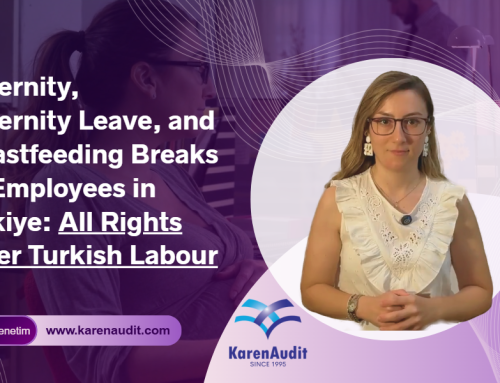Labor Law No. 4857
Article 46 – In workplaces covered by this Law, workers are given at least twenty-four hours of uninterrupted rest (weekly holiday) within a seven-day period, provided that they have worked on the workdays determined in accordance with Article 63 before the holiday.
The employer pays the full wage for the weekday holiday without any work compensation.
The following are taken into account as days worked.
a) The times that are legally considered as working hours, and the holidays arising from the law or contract, for which daily wages are paid or not paid,
b) (Amended: 4/4/2015-6645/35 art.) The leave periods listed in Additional Article 2,
c) Other leaves granted by the employer to remain within a one-week period and sick and rest leaves granted with a medical report
If the employer suspends work at the workplace on one or more days of the week without a compelling and economic reason, the days not worked during the week are considered to have been worked in order to earn the right to a paid weekly holiday.
When compelling reasons that require work to be suspended for more than a week arise in a workplace, the half wage paid to the workers for the days not worked due to compelling reasons specified in subparagraphs (III) of Articles 24 and 25 is also paid for the weekly holiday day.
In workplaces where the percentage method is applied, the weekly holiday wage is paid to the worker by the employer.
General holiday wages
Article 47 – If workers working in workplaces within the scope of this Law do not work on days that are accepted as national holidays and general holidays by law, they are paid the full wages of that day without any compensation for work, and if they work without taking a holiday, they are paid one day’s wage for each day worked.
In workplaces where the percentage method is applied, the national holiday and general holiday wages of workers are paid to the worker by the employer.
Source: Labor Law No. 4857
Legal Notice: The information in this article is intended for information purposes only. It is not intended for professional information purposes specific to a person or an institution. Every institution has different requirements because of its own circumstances even though they bear a resemblance to each other. Consequently, it is your interest to consult on an expert before taking a decision based on information stated in this article and putting into practice. Neither Karen Audit nor related person or institutions are not responsible for any damages or losses that might occur in consequence of the use of the information in this article by private or formal, real or legal person and institutions.






